POLAR X: True Stories About Women at the Poles
It was sweltering in Paris over the weekend of Polar X, an inaugural workshop and symposium at the Université Paris Cité which brought together scholars, artists, and writers from around the world to examine a new framework for thinking about polar narratives in the Arctic and Antarctic.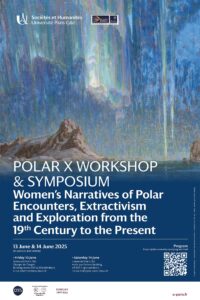
On the first day, June 13th, Paris hit a high of 90 degrees Fahrenheit. The irony of discussing stories about the North and South poles in a baking conference room didn’t escape anyone there (especially those who’d joined us from Norway, the Yukon, and Siberia!)
But we rallied – perhaps inspired, in part, by reading excerpts from Ada Blackjack’s incredible diaries of what she endured after being stranded on Wrangel Island in 1923. An Indigenous woman with no experience in hunting or survival skills, she survived harsh Arctic conditions through resourcefulness and grit. I’ll think of her now as Ada “Badass” Blackjack, as someone dubbed her during our workshop.
Organized by Michèle Mendelssohn (Oxford University) and Cécile Roudeau (Université Paris Cité), the aim of the POLAR X PROJECT was to generate an innovative multi-disciplinary approach to investigate the vexed relationship between the extraction of scientific, natural and ethnographic resources from the 19th century to the present day.
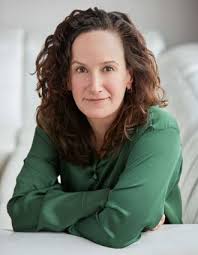
Michele Mendelssohn, who organized Polar X with Cécile Roudeau
I was invited to Polar X by Michele, a 19th century literary scholar and author of the biography Making Oscar Wilde, after we realized we were both working on projects about women polar explorers. As one of the few non-academics there, it was a privilege to participate (though I did have to look up the meaning of a few of the terms the scholars used, such as “ecocriticism.”) I also discovered that Cécile, the French translator of the work of W.S. Merwin, and I share a love of this poet’s work. Another was hearing from a scientist who researches permafrost – Charlotte A. Wrigley, from the University of Stavanger in southwest Norway. She’s delivering a keynote address on permafrost at an upcoming scientific gathering in Paris.
During the workshopping portion of the weekend, we discussed everything from a paper about a woman who reinvented herself as a fur-trapper in the Svalbard Peninsula by Marit Anne Hauan (a Sami scholar and museum curator from the University of Tromsø) to Durham University’s Abbie Garrington on an interdisciplinary approach to polar studies, to the experiences of Drew Lyness from Yukon University and his experience in listening to what First Nations communities wanted to learn from faculty and staff at the university. Kunnei Takaahai, a member of a Polish-Siberian Research Group at the University of Warsaw, presented her curated website of work by 13 Sakha artists from Russian Siberia.
Allegra Rosenberg, who directs the Terror Camp Polar Fan Conference, told us about the mashup of fans and polar experts who come together to discuss the AMC series, The Terror, based on the doomed Franklin expedition. (Allegra wrote an extraordinary story for The Atavist about an Antarctic love story between two Naval Officers in 1910.) I also enjoyed the paper by Anne Floren Quaireau who wrote a thought-provoking paper about “The Snow Baby” (1901) and “Children of the Arctic” (1903).
Towards the end of the gathering, we workshopped the South African scholar Charne Lavery’s draft chapter for a handbook that Bloomsbury is publishing on “Blue Humanities” (another term that was new to me. It refers to scholarship having to do with the sea.) Charne’s chapter focused on narratives about the Southern Ocean – ranging far beyond the usual offerings from Melville and Coleridge and suggesting instead writings by the feminist science fiction writer Ursula Le Guin (we discussed her fabulous counter-history, “Sur,” which the New Yorker published in 1982.) She also recommended the South African science fiction writer Lauren Beukes’s story “Her Seal Skin Coat,” describing the sub-ice Antarctic world from a seal’s perspective.
My reading list is now much longer, and I hope to continue the Polar X conversation with the new colleagues I met in that sweltering classroom in the months ahead.
***
Julia Flynn Siler is an academic visitor at Oxford University who is researching a historic schooner that made many voyages to the Arctic in the first half of the 20th century. She is also the nonfiction director of the Community of Writers and a New York Times bestselling author. For more information, please visit www.juliaflynnsiler.com
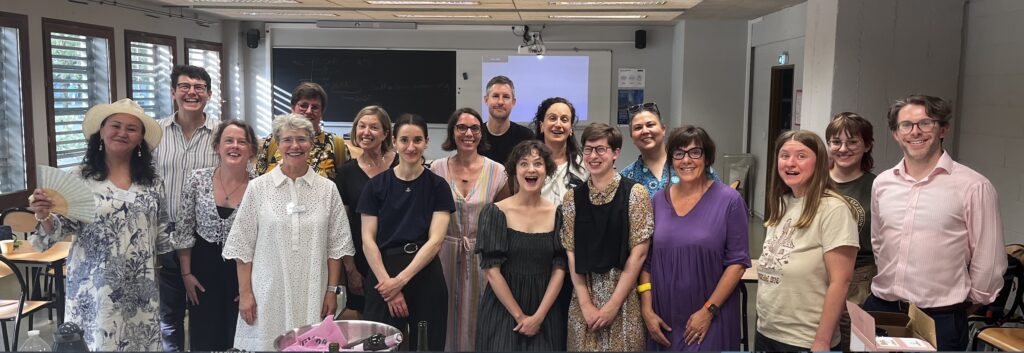
Polar X organizers and participants, June 13-14, 2025 Paris
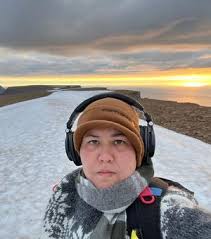
Diana Chester, a sound studies scholar and artist
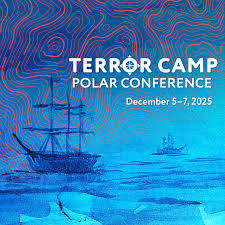
Terror Camp 2025
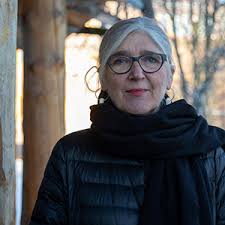
Marit Anne Hauan (Polarmuseum/ University of Tromsø)
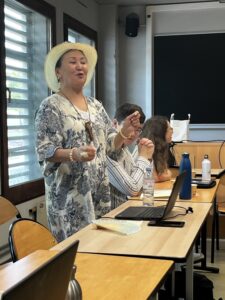
Kunnei Takaahai, a Sakha academic from Siberian Russia
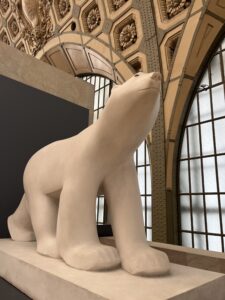
Polar bear by Francois Pompon at the Musee du Orsay (a field trip I took to see this wonderful sculpture!)
Thank you, Julia, for this lively wrap-up of our symposium and workshop. We were so lucky to have your insights as a writer. Yes, there are gaps in the archives that only fiction writers know how to make alive. Looking forward to further discussions with you!
Julia:
You mention “the vexed relationship between the extraction of scientific, natural and ethnographic resources” which made me wonder if you’re familiar with Seacology. I ask because Seacology focuses the tendancy to extract and profit from natural resources at an environmental price.
Seacology Foundation’s mission is to protect the unique habitats and cultures of islands worldwide. Over the years we’ve done 432 projects in 70 countries, protecting 1.5 million acres. All of our work is focused on island ecosystems – coral reefs, coastal wetlands, mountain forests and the local indigenous people who have been preserving them for generations. We work directly with island communities, helping them to preserve their unique cultures for their children while saving precious island habitats.
For more information about Seacology, including opportunities to travel with Seacology: https://www.seacology.org/travel/